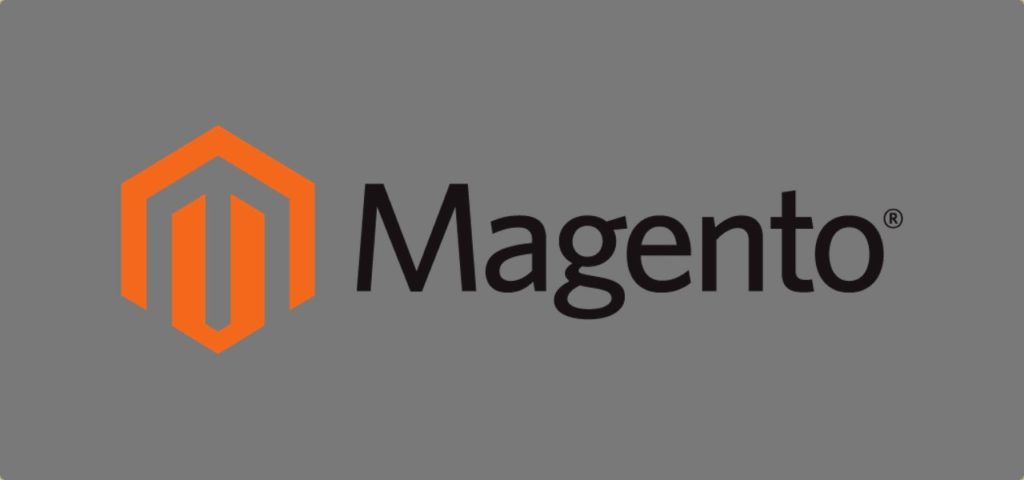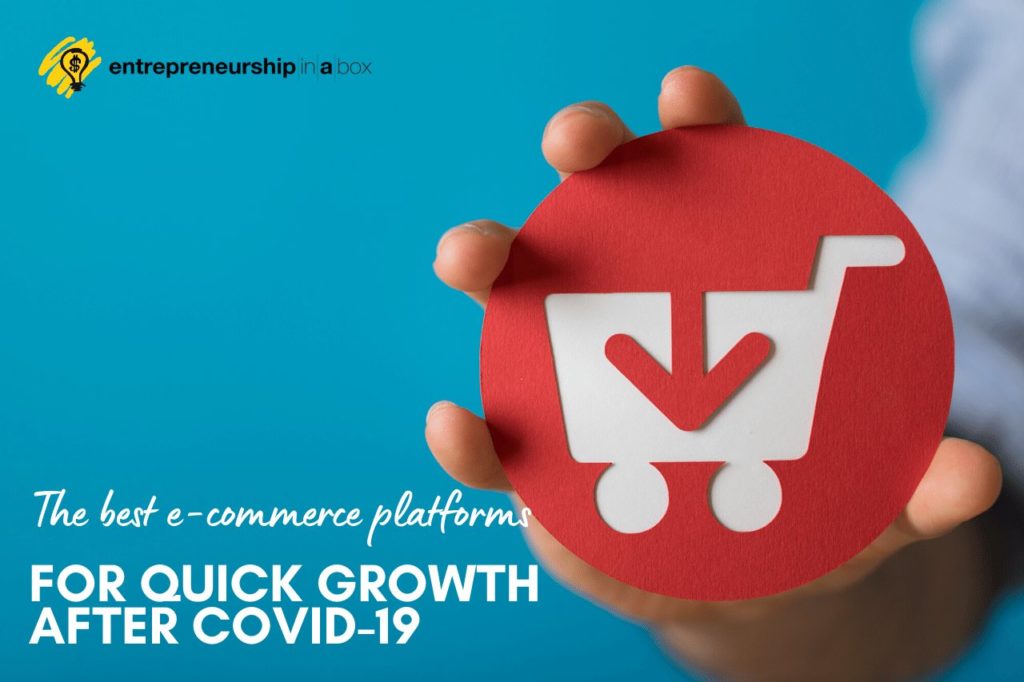As we all know the outburst of the Covid-19 pandemic has affected the health and economy of the entire world. It has brought a rapid change in the balance sheets of all businesses and not just this year but for many years to come. Because of this unpredictability in the economy all businesses, enterprises, and SMB’s are really worried about the future.
However, in these unsettling times, E-commerce platforms have proven themselves to be the saviors for customers and also for merchants. According to a study, global e-commerce sales will reach $4.2 billion and it will hold 16% of total retail sales. These numbers are predicted to go up as we continue further into the 2020s.
These online platforms are not only helping in opening an online store fast but are also creating many offers. Here are the best e-commerce platforms for the quick growth of your online store.
Magento

This e-commerce platform is widely popular and it is mostly used for building large scale e-commerce websites. Magento also has a marketplace extension which makes it a functioning multi-vendor marketplace.
In order to help businesses that suffered during the pandemic, the company has offered three months of free Magento for all kinds of businesses. Also, they are also offering free training programs.
Growser
As we all know the demand for purchasing groceries online has increased drastically in the last two months. Customers all over the world were either in quarantine or maintaining social distancing and this why the need for online shopping has increased.
If you’re planning on opening an online grocery website or marketplace, then check out Growser. Their e-commerce platform offers discounts and quick setup for new clients.
Shopify

This e-commerce platform started in 2004 and is probably the best solution for starting an online store. Because of the pandemic, Shopify has extended its free trial from 30 days to 90 days. Also, they are famous for offering free email marketing tools along with their plans.
Their platform also has a feature that allows you to have an onsite blog. Keep in mind that content writing services can create a blog for your e-commerce store, which will in the end help you get more organic traffic.
🖐 Warning
100+ Blog Post Ideas for Your Small Business Blog
Yo!Kart
This a well known and popular e-commerce platform that allows you to set in motion a marketplace similar to Amazon and eBay. If you’re interested in creating a marketplace to help vendors or sellers who are losing sales due to the pandemic and want to go online, then surely check out Yo!Kart. They have reduced their startup package price up to 50% and also offer free consultation from their team of consultants who can help in opening your online marketplace.
Quick eSelling
Similar to Shopify, Quick eSelling is a hosted e-commerce platform that was created in 2015.
During the pandemic, they offered a completely free e-commerce store setup to local retailers.
What they also offer are free transaction charges until June 2020 and so it is an excellent opportunity for startups or small businesses that want to start selling online.
BIG COMMERCE
The company was founded in 2009 by Eddie Machaalani and Mitchel Harper. To this day, they have helped online retailers make 25$ billion worth of sales across 120 countries around the world.
Their platform is best for SMB’s that require a lot from their platform and also have the necessary resources to invest. The platform’s base tier has lots of features, however, they are more expensive than other competitors.
Their advanced features like abandoned cart features and shipping integrations are one of the best in the industry but are not allowed at lower tiers. BIG COMMERCE doesn’t charge a fee per transaction but instead caps the number of sales you can do per tier.
Another great aspect of their platform is that it is great for beginners. You can easily edit or modify SEO-related features such as custom URLs, page titles, and the like. The biggest difference is that you can sell in multiple currencies and with other platforms, you can’t.
Squarespace
Based in New York, this software as a base company provides website and e-commerce building and customer hosting. Customers are allowed to create their own websites by using drag-and-drop functionality and pre-built site templates.
Square space is ideal for entrepreneurs and small businesses that have basic e-commerce needs. Their platform is very effective, however, only as a companion with the main website builder. Businesses that have a need for more advanced retail requirements and handle with a larger amount of inventory should seek for more dedicated platforms.
Squarespace probably has one of the easiest design interfaces in the market. It doesn’t matter how experienced you are, you can easily modify or assemble your e-commerce platform.
One of the downsides of this platform is that there aren’t many add-ons available in the default builder and there is no app-store for third party extensions. Because of this, the functionality of your e-commerce site is limited.
Wix.com

This is a cloud-based website builder that offers users to create online stores using drag and drop tools. Wix.com has a wide range of designs and templates that make the platform easy for beginners and recourse-strapped businesses to create a functional and captivating website.
Their platform is ideal for small businesses that aren’t interested in having a dedicated web designer. The site builder is easy to use and the functionality of the e-commerce is strong enough to fulfill basic needs. Although there are some basic plugins that can extend the functionality, businesses with complex product lines should seek a more dedicated platform.
The platform itself is most famous for being easy to use, and in that aspect, it works perfectly.
Bagisto
This is an open-source e-commerce platform that is also designed to be an e-commerce eco-system for all to build and scale their businesses. Also, it’s totally free and is an open-source framework that offers a wide spectrum of functionality and offers total control of your online store.
Bagisto allows you to turn your store into a multi-vendor marketplace. This way multiple vendors can sell their products on your website. You will also be able to connect your store to multiple inventory sources in order to manage multi-channel inventories from a single website. This way you will be able to easily track your product stock in a particular inventory.
The framework is known to be very flexible and easy to use and is easily learned even by non-tech users.
Final word
Because of the Covid-19 pandemic, many businesses are moving their offline stores to e-commerce and commerce platforms, and hosting companies are offering their helping hand. If you are planning to launch an e-commerce website, remember that there is no single overall best platform. You need to examine your needs thoroughly and don’t be afraid to run a few trials to see which solution suits your business the best. Do your research on all these offers and you will surely find the right one.
📖 Read more similar articles





